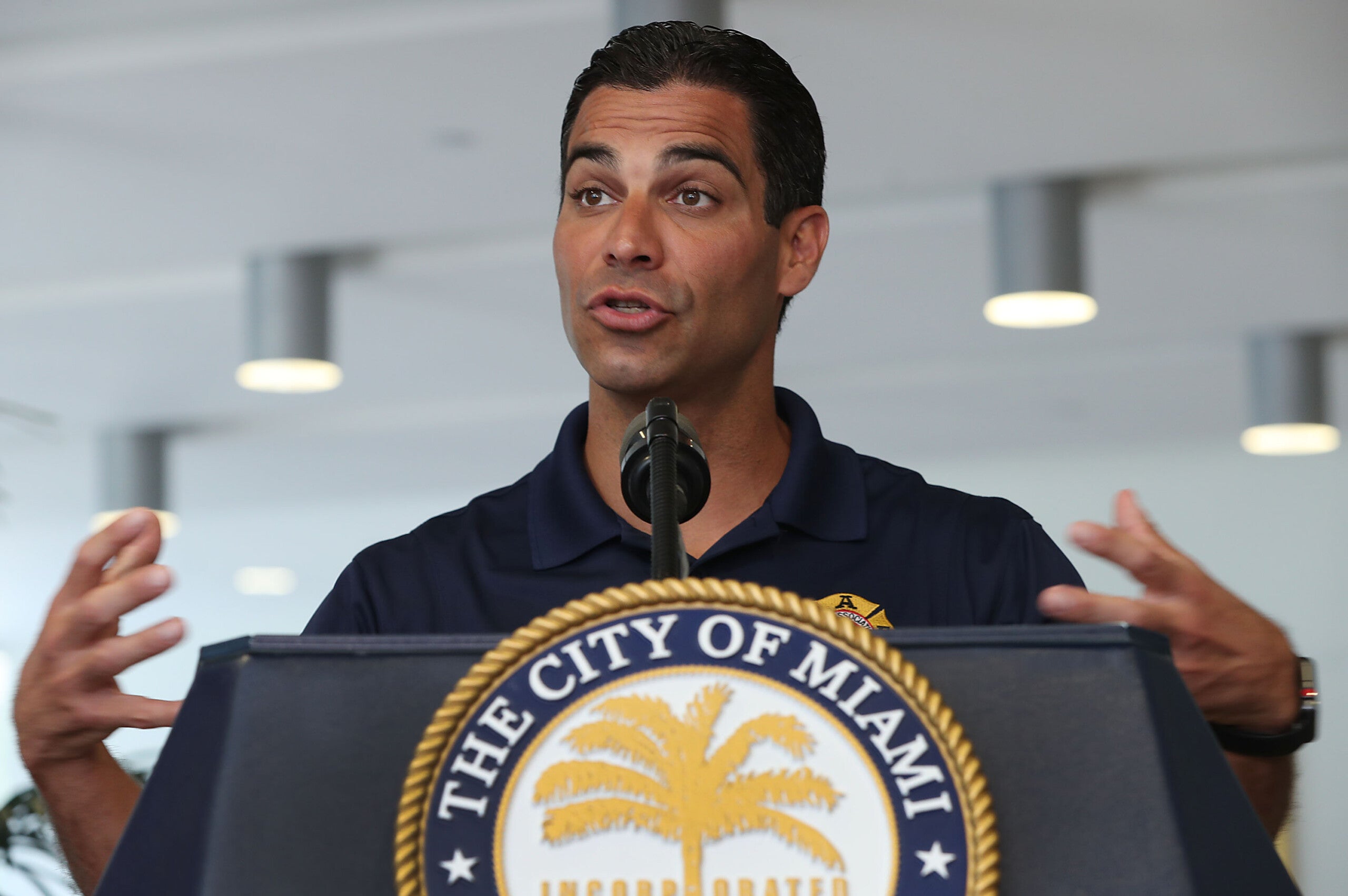Florida residents can now enjoy restaurants and bars without restrictions, but Miami mayor says state may not be ready
(CNN) — As Florida restaurants and bars enjoyed their first full day of operation without Covid-19 restrictions in months, the mayor of Miami warned that the governor’s decision to fully reopen such establishments and to limit local governments’ ability to enforce their own restrictions could have devastating consequences.
“I think it’s going to have a huge impact,” Mayor Francis Suarez told CNN Saturday about Florida Gov. Ron DeSantis’ decision to allow restaurants, bars and other businesses to open at full capacity and to suspend fines for all outstanding penalties issued to those who didn’t follow Covid-19 restrictions — such as not wearing a mask in public. “You know, I just don’t know how many people are actually going to do it now.”
DeSantis signed an executive order on Friday evening allowing restaurants and bars to immediately begin operating at 100% capacity. He cited the economic hardships of not operating businesses at full capacity, according to the order.
Suarez said mandating mask wearing in public and slowly reopening has helped to keep the coronavirus case count down in Miami.
There have been nearly 700,000 cases of coronavirus in Florida and the virus has killed more than 14,000 people in the state, according to data from Johns Hopkins University.
Nationwide, more than 7 million people have been infected and 204,497 have died.
Suarez said he’s concerned that the changes in the state are coming as flu season ramps up and schools prepare for in-person learning to begin in mid-October.
“We’ll see in the next couple of weeks whether he’s right about his perspective. But if he’s wrong about his perspective … it’s going to be very, very, very difficult for him and it’s going to be a very difficult time, because it’s in the middle of flu season,” Suarez said.
A winter surge could be on the horizon
The US could see an explosion of Covid-19 cases in the fall and winter as people exercise less caution and spend more time indoors, where there is a greater likelihood of transmission, according to Dr. Chris Murray, director of the University of Washington’s Institute for Health Metrics and Evaluation (IHME).
Murray says the IHME model shows a “huge surge” expected to take off in October “and accelerate in November and December.” The IHME model indicates that the country is currently seeing about 765 daily deaths from Covid-19, but that number could jump to 3,000 daily deaths by late December.
Over the summer, US Centers for Disease Control and Prevention director Dr. Robert Redfield warned the fall and winter could be “one of the most difficult times that we experienced in American public health.” And with daily cases averaging 40,000 nationwide, the new season could be a challenge, infectious disease expert Dr. Anthony Fauci said.
“You don’t want to enter into the fall and winter with a community spread at that level, because if you do, you got a difficult situation that’s going to be really challenging,” Fauci told JAMA Editor in Chief Dr. Howard Bauchner.
A winter surge could already be brewing in Europe, Murray said.
“Cases are exploding there. So we know it’s coming and we expect it to hit the US pretty soon,” Murray said.
Normal could be a long way off — even with a vaccine
Fauci says Covid-19 vaccinations could “very likely” start in November or December. But it could still be a while until the US is back to normal.
“By the time you get enough people vaccinated … so that you can start thinking about maybe getting a little bit more towards normality, that very likely, as I and others have said, will be maybe the third quarter or so of 2021,” he told Bauchner. “Maybe even into the fourth quarter.”
In the meantime, Fauci and other leading experts have urged Americans to continue heeding safety guidelines and wearing masks, keeping a distance, avoid crowded places and washing their hands.
The measures could be life-saving.
Redfield said this week, preliminary results of the first round of a study show more than 90% of the US population remains susceptible to Covid-19. And a study published Friday in The Lancet found as of July, fewer than 10% of people in the US had antibodies to the virus.
“This research clearly confirms that despite high rates of COVID-19 in the United States, the number of people with antibodies is still low and we haven’t come close to achieving herd immunity,” one of the study authors, Dr. Julie Parsonnet, a professor of medicine at Stanford University, said in a statement.
“Until an effective vaccine is approved, we need to make sure our more vulnerable populations are reached with prevention measures.”
The-CNN-Wire
™ & © 2020 Cable News Network, Inc., a WarnerMedia Company. All rights reserved.
